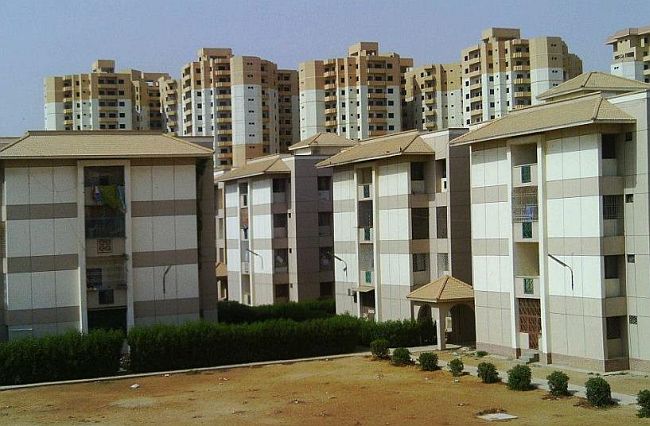
LAHORE: Pakistan has been ranked at 75th with a score of 3.99 in the bi-annual Global Real Estate Transparency Index 2018 report released on Thursday.
Pakistan was positioned in the low-ranking tier behind Iran and arch-rival India which registered an improvement by moving up one ranking to 35th with a score of 2.71.
Pakistan jumped up 15 positions to 75th in 2018 compared to 88th in 2016 when South Asia’s first REIT had pushed the country into the “low transparency” category.
Pakistan and Saudi Arabia have also seen rising transparency over the past two years, with regulatory reforms and increased data collection and publication by government bodies and international market participants contributing to their progress.
In an emailed response to Profit, Walid Alaiwan Graduate Analyst, Research, MENA, JLL said:
“With the real estate market undergoing significant growth, Pakistan’s (75th) reforms and initiatives have allowed the country to witness considerable improvement in its transparency ranking. The announcement of a set of simplified tax reforms, such as the foreign and domestic assets declaration and repatriation ordinance, allows for better documentation of the real estate sector of the country. It is expected that these reforms will allow the sector to grow as investors are attracted by a more regulated and systemic market.
Please be advised that although Pakistan did witness an improvement in transparency scores, the jump in rank can be also be the by-product of other markets deteriorating in overall transparency.”
The transparency index incorporates 186 components distributed across 6 Sub-Indices, which are:
- Performance Measurement
- Market Fundamentals
- Governance of Listed Vehicles
- Regulatory & Legal
- Transaction Process
- Sustainability
The report’s key findings from the 2018 survey disclose transparency was continually advancing, with average transparency scores posting 2.4 percent improvement. And progress in transparency has been broad-based, with 85 percent of the countries posting an improvement compared to roughly two-thirds in 2016.
However, the report highlighted “advances in real estate transparency are failing to keep pace with an environment where investors and businesses, as well as society at large, are demanding much higher standards and where an emergent proptech industry is fuelling expectations of a significant improvement in transparency.”
According to the Global Real Estate Transparency Index, South Asia and Southeast Asia contributed to advances in the Asia-Pacific region.
It added Myanmar had posted the biggest improvement globally, moving up 15 places to join the “Low Transparency” group which was attributable to the government’s initiative to open up its economy since rising investor demand translates into greater market intelligence.
The report said “Thailand’s improvement is underpinned by greater regulatory enforcement, planned introduction of a new property taxation system and steps to digitize its land registry. Macau has also made progress, with a focus on anti-money laundering resulting in increased monitoring by financial regulators.”
Improvements in transparency in some Asian countries have been accompanied by record-breaking commercial real estate investment volumes.
During 2017, real estate transactions in the Asia-Pacific region touched a record high of US$149 billion, the report concluded.
Head of Research, Asia-Pacific at JLL Dr Megan Walters said: “Asia-Pacific as a whole has made the strongest transparency improvements since 2016 compared to the other four regions covered by the study.”
And Jeremy Kelly, Director, Global Research, JLL said, “Transparency is increasingly important for the commercial real estate, where investors are allocating ever more capital.
He added, “The availability and quality of information – from prices to ownership – is crucial when trying to make investment decisions, especially in new markets.”






